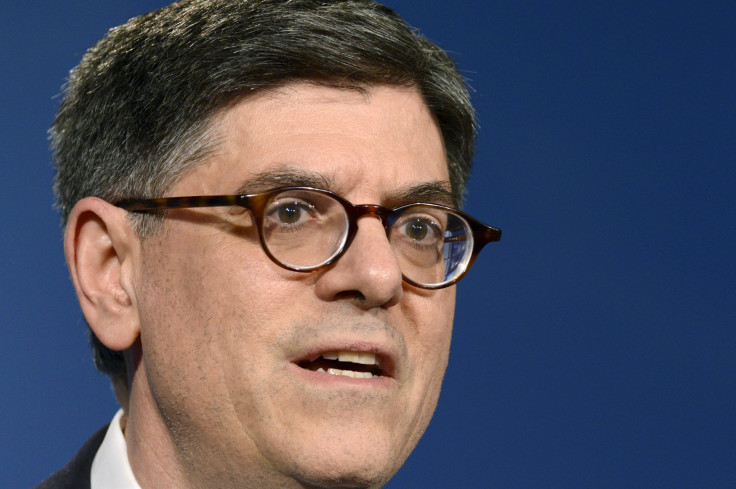US Tax Reform: Treasury Secretary Jacob Lew Says Now's The Time To Bring Tax Dollars Home And Repair Infrastructure

U.S. Treasury Secretary Jacob Lew is calling on Congress to act on corporate tax reform, saying recent actions by the European Commission create an opportunity to bring tax dollars home to fund infrastructure repair and investment.
In an op-ed piece to be published Tuesday in the Wall Street Journal, Lew said the EC’s decision imposing a $14.5 billion retroactive tax bill on Apple points up the need for action on U.S. business tax reform to discourage tax avoidance.
“American corporations alone are avoiding paying U.S. taxes by holding more than $2 trillion in deferred overseas income,” Lew wrote.
In a letter to EC President Jean-Claude Juncker, Lew said the EC effort to impose taxes retroactively is a mistake and flies in the face of “well-established international tax standards.”
“There is widespread agreement that our business tax system needs to be fixed. To that end, I have repeatedly urged Congress to act on President Obama’s proposed plan for business tax reform and infrastructure investment,” Lew said in the op-ed.
“Our current tax code is riddled with loopholes that allow corporations to artificially lower their tax bills by shifting income from higher-tax countries to low- or no-tax jurisdictions. The combination of the relatively high U.S. corporate rate, our complicated system for taxing multinational businesses, and our aging infrastructure has encouraged and facilitated the erosion of our tax base and made America a less attractive place to do business.”
The Washington Center for Equitable Growth has recommended treating capital income on a par with labor income, and called for protection from profit shifting.
“In an environment where both the capital share of income and corporate profits are rising, it is important to preserve corporate taxes on capital and profits as sources of revenue,” wrote Kimberly A. Clausing, a professor at Reed College. “While U.S. corporate taxes have been roughly stable as a share of GDP [gross domestic product] in recent years, that stability masks substantial erosion of the corporate tax base.”
Clausing added: “A key principle of any corporate tax reform should be to harmonize the tax rate between different types of income in order to avoid tax shenanigans that mischaracterize income in tax-preferred forms, and to avoid the distortions associated with disparate tax treatment.”
© Copyright IBTimes 2025. All rights reserved.






















